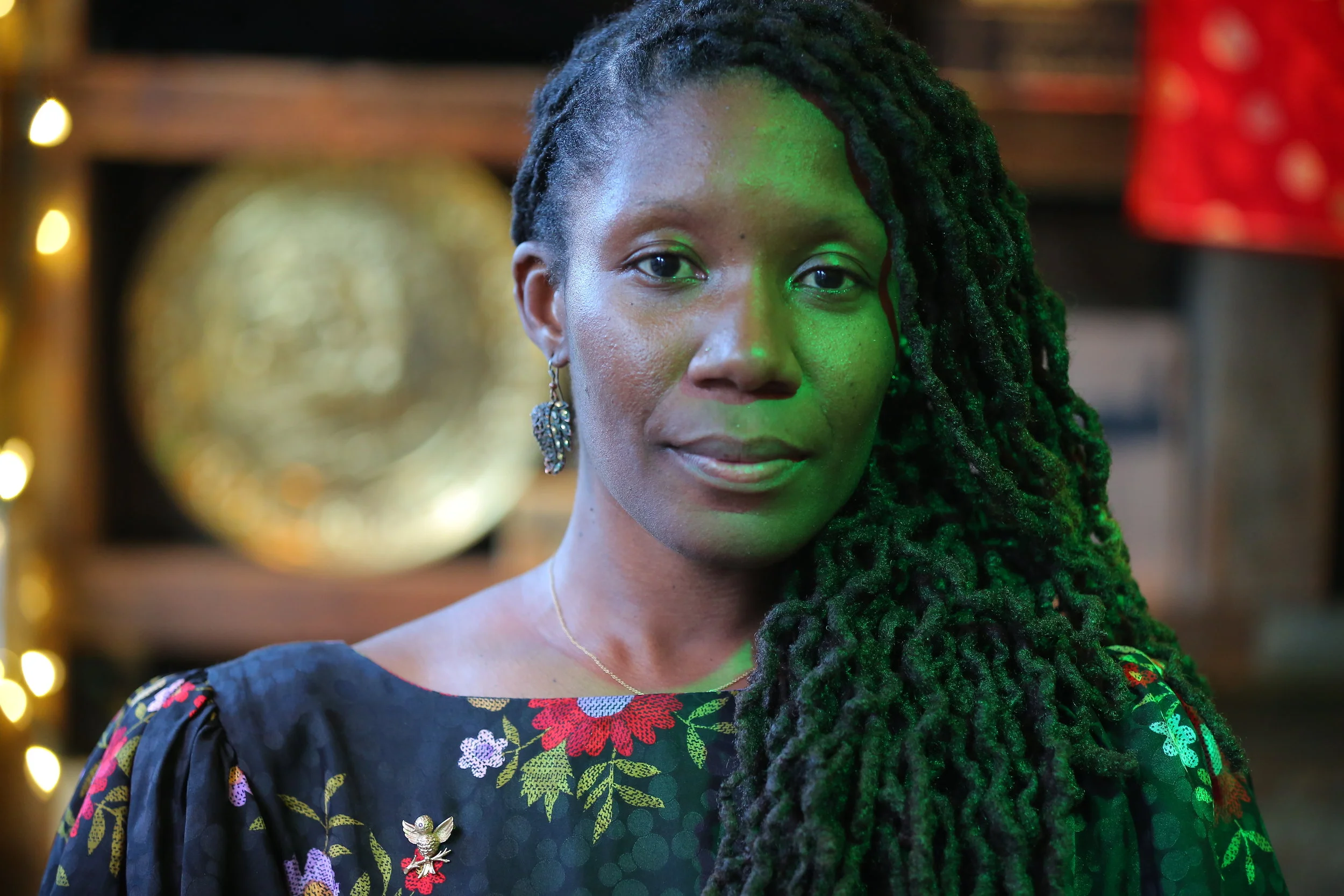At Old Fort Craft Park Delores links hands with the flushed face men in floral shirts who are too polite to decline, and the women in broad straw hats whose thin lips fix in frightened smiles. Before the tourists pass Delores’s stall, she listens to the prices the other higglers quote them—prices that make the tourists politely decline and walk away. So by the time they get to Delores—the last stall in the market—she’s ready. She pounces. Just like she does at Falmouth Market on Tuesdays as soon as the ship docks. But the tourists hesitate, as they always do, probably startled by the big, black woman with bulging eyes and flared nostrils. Her current victims are a middle-aged couple.
“Me have nuff nuff nice t’ings fah you an’ yuh husband…come dis way, sweetie pie.”
Delores pulls the woman’s hand gently. The man follows behind his wife, both hands clutching the big camera around his neck as if he’s afraid someone will steal it.
To set them at ease, Delores confides in them: “Oh lawd ah mercy,” she says, fanning herself with an old Jamaica Observer. “Dis rhaatid heat is no joke. Yuh know I been standin’ in it all day?…bwoy t’ings haa’d.”
She wipes the sweat that pours down her face, one eye on them. It’s more nervousness than the heat, because things are slow and Delores needs the money. She observes the woman scrutinizing the jewelry—the drop earrings made of wood, the beaded necklaces, anklets, and bracelets—the only things in the stall that Delores makes. “Dat one would be nice wid yuh dress…” Delores says when the woman picks up a necklace. But the woman only responds with a stiff smile, gently putting down the item then moving on to the next. Delores continues to fan. Normally the Americans are chatty, gullible. Delores never usually have to work so hard with them for their politeness makes them benevolent, apologetic to a fault. But this couple must be a different breed. Maybe Delores is wrong. Maybe they’re from somewhere else. But only the American tourists dress like they’re going on a safari, especially the men, with their clogs, khaki apparel, and binocular-looking cameras.
“Hot flash and dis ungodly heat nuh ‘gree at’all,” Delores says when the woman moves to the woven baskets. Only then does the woman smile—a genuine smile that indicates her understanding—the recognition of a universal feminine condition. Only then does she finger her foreign bills as though unwilling to part with it.
Read the rest in SING THE TRUTH: THE KWELI JOURNAL SHORT STORY COLLECTION
Contributor Notes
Nicole Y. Dennis-Benn is a Jamaican-born writer who received her Masters of Public Health from the University of Michigan, Ann Arbor and subsequently received her MFA in Fiction from Sarah Lawrence College. Her writing has earned her fellowships from Kimbilio, the Lambda Literary Foundation, the Vermont Studio Center, and the Barbara Deming Memorial Fund for Women Writers. Her work has been awarded Honorable Mention from the Hurston/Wright Foundation, and has appeared in Red Rock Review, Mosaic, Ebony.com, and the Feminist Wire. She currently teaches writing at the College of Staten Island and lives with her wife in Brooklyn, New York.





